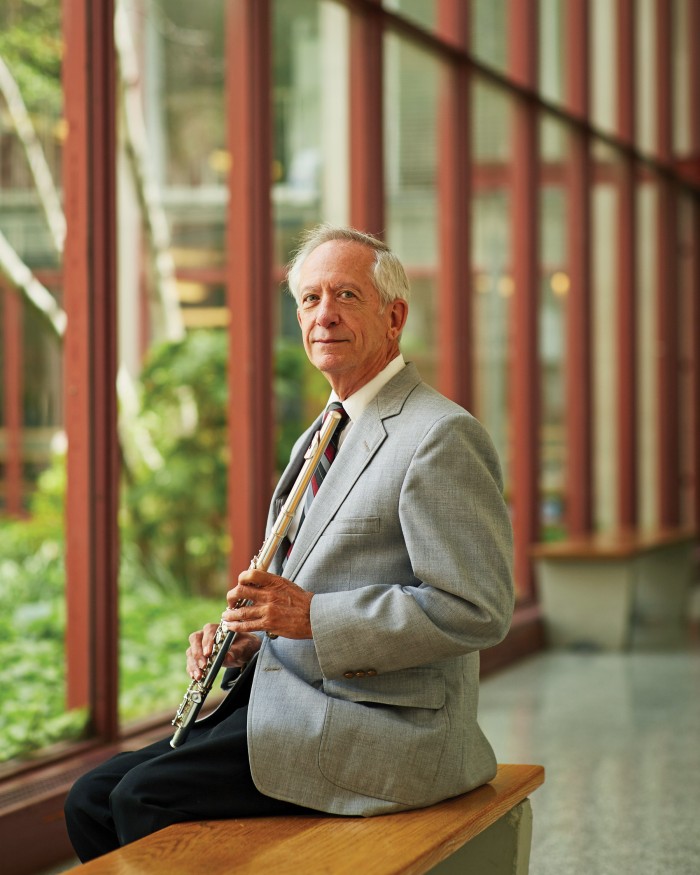
As an electrical engineering major at MIT, David Tweed turned to music as the perfect complement to the rigor of his studies. “MIT was challenging, but being a part of the orchestra and the concert band kept me grounded,” says Tweed, who plays the flute, clarinet, and saxophone. He strongly believes that exposure to the arts is important for a well-rounded life. With this in mind, he is giving back to help MIT students find a balance between their creative and technical sides.
After graduating, Tweed started working for the MIT Instrumentation Lab (now Draper Lab), where he gained useful experience in business operations. He then switched gears and worked on startups for the rest of his career. But Tweed’s goal was always to get back to music, which he had put aside for 27 years to focus on work. Upon retirement, he joined a community band and was then recruited by the International Flute Orchestra. He currently enjoys touring with the group as a semi-pro musician.
Looking back at his time at MIT, Tweed decided to give back to students who understand the value of a performing-arts education. His scholarship benefits students concentrating on performing arts, as well as first-generation students. “I’m happy to be in a position where I can help someone who otherwise might not have access to a first-class education at MIT,” Tweed says. He is also providing support for the student-organized MIT Concert Band.
Please consider your own gift to MIT.
For information, contact David Woodruff:
617-253-3990; daw@mit.edu.
Or visit giving.mit.edu.
Keep Reading
Most Popular
Large language models can do jaw-dropping things. But nobody knows exactly why.
And that's a problem. Figuring it out is one of the biggest scientific puzzles of our time and a crucial step towards controlling more powerful future models.
How scientists traced a mysterious covid case back to six toilets
When wastewater surveillance turns into a hunt for a single infected individual, the ethics get tricky.
The problem with plug-in hybrids? Their drivers.
Plug-in hybrids are often sold as a transition to EVs, but new data from Europe shows we’re still underestimating the emissions they produce.
Google DeepMind’s new generative model makes Super Mario–like games from scratch
Genie learns how to control games by watching hours and hours of video. It could help train next-gen robots too.
Stay connected
Get the latest updates from
MIT Technology Review
Discover special offers, top stories, upcoming events, and more.